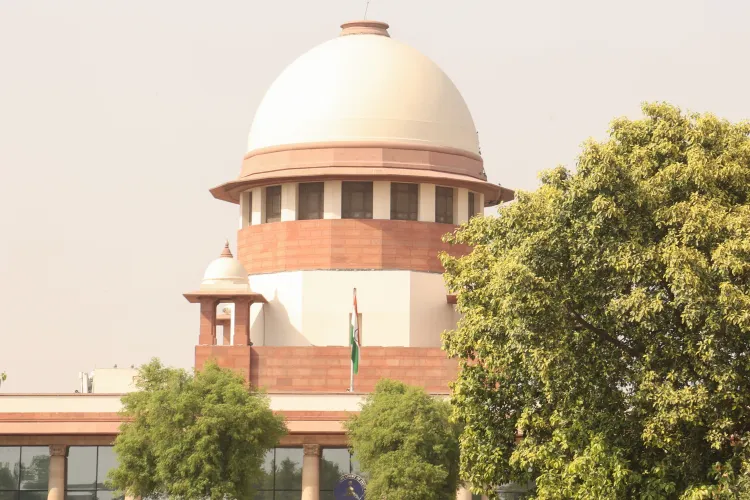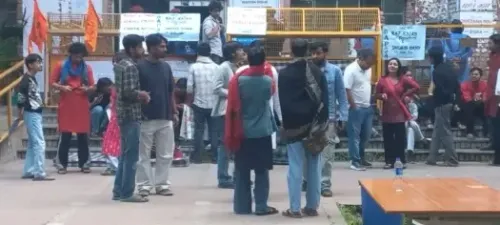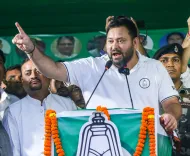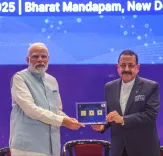Should the Supreme Court Ban Illegal Betting Apps?

Synopsis
Key Takeaways
- The Supreme Court is reviewing a petition to ban illegal betting apps.
- The petition highlights the need for regulations on online gaming and fantasy sports.
- Concerns include rising debts and suicides linked to gambling.
- The absence of uniform legislation to regulate online betting is a major issue.
- The petitioner advocates for the protection of vulnerable citizens.
New Delhi, May 23 (NationPress) The Supreme Court has decided to look into a petition aimed at instituting a full ban on “illegal” betting applications.
The application also calls for stringent regulations governing online gaming and fantasy sports, along with the establishment of a comprehensive legal framework.
A panel comprising Justices Surya Kant and N.K. Singh has issued a notice to the Centre, requesting a response, but has currently opted not to send notices to state governments.
The individual behind the petition, who identifies as a “notable social activist, humanitarian, and President of Global Peace Initiative,” stated that the Public Interest Litigation (PIL) was filed to safeguard millions and uphold sanity and democracy in India through a ban on “illegal” betting apps.
The petition highlighted an FIR filed in March in Telangana against 25 Bollywood stars, cricketers, and influencers for misleading the public by endorsing betting applications.
Moreover, it cited a report about the tragic suicides of 24 individuals from Telangana who succumbed to debts from online betting.
It emphasized that the petition was brought directly before the Supreme Court to protect Indian youth and at-risk citizens from the dangers of unregulated online betting and gambling, often masked as fantasy sports and skill-based gaming.
The petitioner argued that the plea was made in “the broader public interest to shield the youth of India from the unregulated, exploitative, and hazardous online betting sector masquerading as fantasy sports and skill-based gaming.”
“Betting, whether online or offline, is fundamentally a game of chance and not skill, thus categorizing it under gambling, which is prohibited in numerous states under the Public Gambling Act, 1867,” the petition elaborated, stressing the absence of a uniform national law to regulate online betting.
Additionally, the petitioner claimed to be a globally recognized Peace Ambassador, nominated for the Nobel Peace Prize by various nations, including the US, Norway, Sudan, and India, for mediating several major conflicts and rescuing over 310 orphans and street children worldwide.









